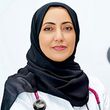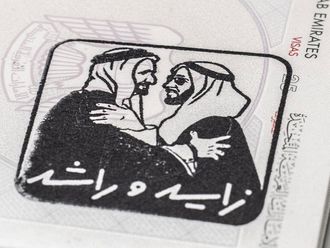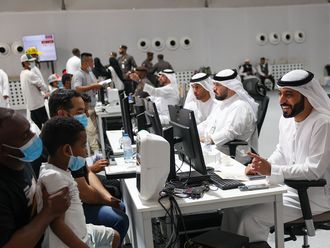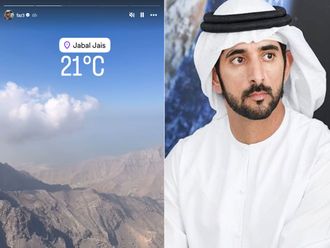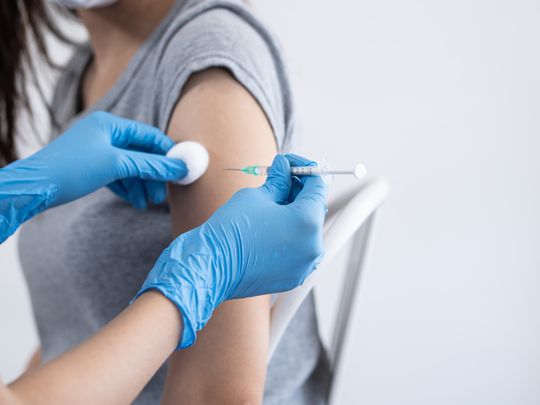
Abu Dhabi: The UAE’s National Immunisation Programme ensures that more than 90 per cent of the population is protected against 14 vaccine-preventable diseases, a top official in infection control said.
Dr Nawal Al Kaabi, Chairperson of the Prevention and Control of Infection (PCI) Committee at Abu Dhabi Health Service Company (SEHA), highlighted the UAE’s significant strides in expanding its vaccination programmes, particularly in areas like influenza and human papillomavirus (HPV).
“The UAE actively adopts the latest advancements in vaccination, such as quadrivalent influenza vaccines for broader strain coverage. The programme has expanded HPV vaccination recommendations to include both males and females, aiming to reduce the prevalence of HPV-related cancers,” Dr Nawal told Gulf News.
Vaccinations offered in the UAE prevent diseases such as tuberculosis, hepatitis B, polio, HPV, measles, mumps and rubella, among others.
Most vulnerable
“The UAE is committed to continuously assessing new vaccines, evaluating the burden of diseases, and aligning with international guidelines to maintain the highest standards of immunisation and public health.” Dr Nawal, who is also the paediatric infectious disease consultant at Sheikh Khalifa Medical City, said that vaccination helps protect the most vulnerable populations, including young children, the elderly, and those with underlying health conditions, by preventing severe cases, reducing hospitalisations, and minimising strain on healthcare resources.
“Vaccines have been fundamental in reducing the incidence and severity of respiratory illnesses in the UAE, especially for diseases like influenza and pneumococcal infections. In a region with high population density and significant international travel, the risk of respiratory disease transmission is elevated,” said Dr Nawal, who was the UAE’s principal investigator of the phase 3 clinical trials of the COVID-19 vaccine.
Immunisation strategies
She pointed out that in recent years, respiratory vaccines have advanced significantly, with improvements in vaccine design, production methods, and delivery technologies.
“Innovations like mRNA technology and recombinant protein-based vaccines have enabled faster vaccine development, better efficacy, and greater safety profiles. For instance, the new RSV vaccines and monoclonal antibodies specifically designed for infants mark a major step forward. These technological advancements allow for more targeted and effective immunisation strategies that address specific strains and high-risk groups, ultimately improving public health outcomes.”
“Innovations like mRNA technology and recombinant protein-based vaccines have enabled faster vaccine development, better efficacy, and greater safety profiles. For instance, the new RSV vaccines and monoclonal antibodies specifically designed for infants mark a major step forward. These technological advancements allow for more targeted and effective immunisation strategies that address specific strains and high-risk groups, ultimately improving public health outcomes.”
Dr Nawal said the future of respiratory care in the UAE is “promising”, with comprehensive vaccination programmes expected to significantly reduce the burden of respiratory diseases. “By adopting the latest vaccines, the UAE is likely to see lower transmission rates and fewer hospital admissions.”
Among the notable innovations, Dr Nawal highlighted the integration of vaccination records into the Al Hosn app, which offers digital proof of immunisation and ensures convenient access for citizens and residents.
“The country’s commitment to cutting-edge healthcare solutions positions it as a leader in respiratory disease prevention, fostering a healthier society overall. Advancements in surveillance and data-sharing systems will enhance the ability to respond swiftly to emerging health threats.”
Tailored approach
Dr Nawal said that when developing vaccination strategies, healthcare providers must prioritise accessibility, affordability, and community-specific needs.
“For vulnerable groups, such as young children, pregnant women, the elderly, and immunocompromised individuals, tailored approaches are essential. It includes selecting the most effective vaccines, scheduling timely doses, and ensuring follow-up care. Education is also critical. Providers should communicate the benefits and safety of vaccines clearly to encourage high uptake. In the UAE, considering the diverse population, it is important to deliver culturally sensitive information in multiple languages to reach all community segments effectively.”


